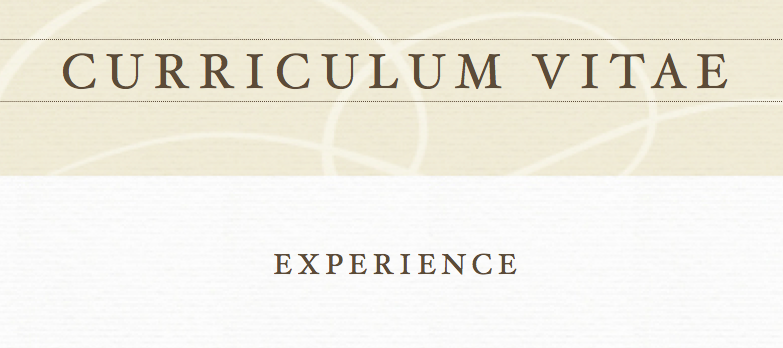I'm Not Being Paid to Write This

As one of the three unpaid part-time interns at Maisonneuve, I receive neither a salary nor a stipend. I started in January and will leave in June, making room for the next crop of interns.
It seems, though, I’m a dying breed. Two weeks ago, news broke that the Ontario Ministry of Labour had ordered the Walrus and Toronto Life to either shut down their unpaid internship programs or start paying interns, citing a breach of the Employment Standards Act.
Both Toronto-based magazines cancelled their programs. Interns at the Walrus worked full-time for four to six months, while the Toronto Life internships ran from three to six months and ranged from part- to full-time, according to the magazine. Students who are interning for school credit are allowed to continue their placements.
And last week, the Toronto Star reported that at least two Rogers-owned magazines—Chatelaine and Flare—let their interns go.
This is good news. People should be paid for their work—period. (Though it’s a shame these programs were shut down so abruptly, leaving many interns to scramble for other opportunities.)
What’s more, unpaid internships disproportionately benefit the already-privileged—people from wealthy backgrounds can more easily afford to work for free and therefore climb the ladder faster than those who need to earn a wage to make end’s meet. I come from a comfortable, middle-class family, but working for free, full-time, for several months on end has never been something I can afford. Maisonneuve’s program is part-time, which is the reason I’m able to work there.
I question the value of unpaid internships. You can argue they’re “investments,” and, sure, once you’re in the office and on the masthead, for four or six or however many months, you’re golden. Learning from the country’s best magazine editors is a dream. But what about after, when you’re out and the new interns are in? You’ve been replaced and don’t have a cent to show for it. It’s true that having a prestigious publication listed on your CV doesn’t hurt, but with entry-level positions in many industries increasingly unpaid, it’s easy to end up on a seemingly endless treadmill of unremunerated work. The New York Times even coined a phrase for it: “the permanent intern underclass.”
Media companies faced with these criticisms often respond by crying poor. As Douglas Knight, president of Toronto Life’s parent company St. Joseph Media, told the Star, “I can’t even afford to pay regular cost of living increases to my staff, let alone my interns.”
This comes off as a bit, well, rich. Given the generally comfortable salaries that Canadian magazine editors make, why not skim a couple thousand dollars off of staff paychecks and pool the money in a fund to pay interns? In an article posted on Story Board, the writer Derek Finkle notes that when he interned at Toronto Life for free in the early nineties, then-editor John Macfarlane took home $120,000. (Macfarlane is now editor of the Walrus.)
I know, I know: despite being an advocate of paid work, here I am, an unpaid intern. I see the hypocrisy, and it does make me uncomfortable. I’ve told people nosy enough to ask that I earn a stipend, just because I detest having to say that I work for free. That I can afford to.
But I’ve justified it to myself. Here’s my reasoning:
Maisonneuve’s internship program is different from the Monday-to-Friday, nine-to-five-plus-overtime internship offered at so many other magazines. My main duties are fact-checking and proofreading for the magazine. I also write a book review for each issue, and am encouraged to pitch and write stories for our website. It’s a smaller publication, with a smaller staff. The hours are part-time and flexible. I’m not required to spend any time in the office. I have time to pursue other, paid work, which is what I’m desperately trying to do. Plus, Maisonneuve is a not-for-profit magazine. (The Walrus Foundation is a charitable non-profit; St. Joseph Media and Rogers are for-profit corporations.) It’s not like there’s a CEO making a buck off my unremunerated labour.
Still—and my editors told me to be honest here—working for free is never ideal, no matter how flexible the hours. Burning through savings doesn’t feel good. Paying rent every month is like a punch in the gut, because it reminds me I’m spending money faster than I’m making it.
There are paid internships out there—some magazines are able to provide training as well as compensation to young journalists. Maclean’s and Canadian Business do; the former offers a one-year program with a $22,500 salary and a three-month summer internship that pays $1,750 a month, while the one-year internship at Canadian Business pays $2,000 a month. Most of the internships offered at Canadian newspapers also pay—some as much as $950 a week.
I should know. Ironically, what made my move to Maisonneuve and my first few months of paying rent in Montreal possible was a small nest egg from my internship last summer at the Telegraph-Journal, a daily paper in Saint John, New Brunswick. It was paid.





